The six pou of Mata Ārahi Manomano drive the questions we have used to profile Māori & Pacific role models, like Ayla, in the Service sector.
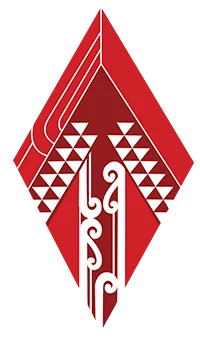
|
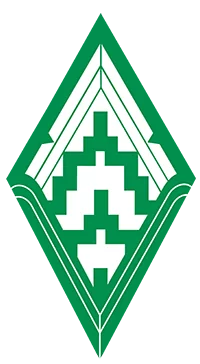
|
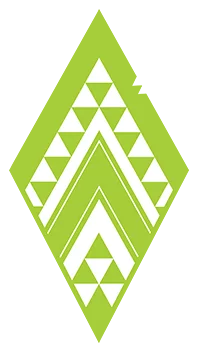
|
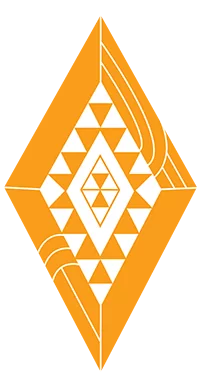
|
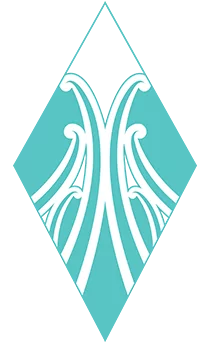
|
|

Representing the levels and forms of aroha that can be found throughout our lives across our many communities. We acknowledge the wide range of obstacles and the journey it takes to overcoming everything that stands in our way to expressing aroha within.
My name is Ayla Carey and my iwi are Te Arawa and Ngā Rauru Wanganui. I work in the Communications trade in The New Zealand Royal Air Force.
I followed the normal trade route, with training in different postings to different locations, then I decided to become an Air Force reservist for a couple years. I did some other work experience there, but I’ve since returned to the Air Force, re-enlisting last year. I’m currently posted to Whenuapai Air Force Base.
I’ve had some experience working with different kinds of people and different cultures and different spaces. So, I would say that I’m quite good at building rapport with people.
I think my communication is quite clear verbally and also that ties into my listening and body language. I’ve come to realise I’m quite empathetic. I can work well under pressure and still produce good outputs despite being required to handle emergency situations.
My weakness is I’m not very good at recognising when I need some rest and more self-care. I feel guilty when I do. This is a good area to touch on, just with maintaining your own wellbeing, it’s an important factor for staying well in the workplace.
I’m also a bit impatient when it comes to goals, I would like to achieve them overnight, but that’s not really how it works.

Seeking guidance from our kaitiaki Hiwa-i-te-rangi, we take a journey through our different aspirations, goals and dreams. This tohu acknowledges hard work, wisdom, the reach of ones goals and the desire that comes from this mahi.
I joined straight after high school. My aspirations were to ease into a workplace where I could learn on the job and get paid, and the community aspects like meeting people, being a part of things like sports and keeping fit. I didn’t have any qualification or university aspirations because I didn’t see that as a pathway, but now as an adult and in the job, I’ve developed what I want to do with my career more.
I’m currently studying within the Air Force, where they give you some funding for studying papers. I’m doing aviation management courses with Massey University in the hopes of doing air traffic control one day. Before then I’d like to become fully qualified in my current role and then to commission and become an officer, so like into a leadership role, where I’m more leading teams and making the decisions.
I’ve done a couple papers already, so I know I like it. It’s a nice balance.

With adventure comes challenges as well as obstacles to overcome. We stand proud as we overcome these obstacles. This tohu draws inspiration from the Niho Taniwha and Aramoana patterns. We acknowledge reaching our destination and preparing ourselves for the many new adventures ahead.
I’ve had quite a few unusual work experiences and I’m only 24, but defence has helped me with all of them. I joined the Air Force originally in the communications trade and I worked for three years towards my 30-year service medal, but I wanted some comparison with defence because I didn’t have anything else to go off.
So, I started the Bachelor of Midwifery in Christchurch, with the hopes of studying in Wellington to become a student midwife. I enjoyed it and was enrolled to start the second year, but I ended up getting a job with NZ Police 111 and found myself back in a communications job – similar but different from Air Force.
Working with 111 you’re listening to some not nice phone calls – like domestic violence, mental health and car crashes – and it’s a lot to take on as a young person. It’s not that I didn’t enjoy it, but the work-life balance is quite difficult with shift work as well. But it helped me with working well under pressure.
I concluded I wasn’t done with the Air Force and I always left the door open, which is why I was in the Air Force Reservist. I’ve been reenlisted in the Air Force for one year now and I will continue with some senior trade training next year. It’s not the normal timeline of joining defence and staying. You have to do what’s right for you.

These patterns represent bravery and being strong in the face of adversity. We strive to be persistent and positively challenge anything that threatens to alter, restrict, and put a barrier in the way of our desired pathway.
I think it kind of boils down to self-wisdom. You have to ignore what you think you should be doing. You have to think about what is right for you and your career and what you want to be doing and enjoying. This helps you align better to not only who you are, but maybe where you should be.
I think the defining moment for me was leaving defence and moving from Auckland to Christchurch. By changing career, leaving friends and family to start fresh, even though that can be stressful, it pushed me into some self-growth. I started boxing there as a hobby and made lots of friends that way.
We are all different, but we can be sometimes blissfully unaware or ignorant of some hardships people have gone through. We have to be really mindful of what’s going on for people, either in the past or currently. I think if that’s how you present yourself, people will feel safer talking to you, and no-one is going to feel left out or different.
Reflecting on the group in School to Skies, I had someone I was looking after who had quite a lot going on in the recruitment process that was putting her off, to the point of potentially not joining, so she spoke to me about that one evening. I think I set the expectation; I think that really helped her.

Here we are drawing inspiration from the Pūhoro pattern. The pūhoro is used here to represent the strength, speed and agility needed to move forward and accomplish ones goals.
I think you need to develop your why or what you want to achieve in a job or as a person. That takes time for some people and when you’re young, it’s hard to do that. But you should just start thinking about, what do I want to get out of work? Where is my interest and passion in life? If you start asking those questions, you’ll get some answers.
The next part is to research anything you’re interested in. Make sure you ask all the questions to people in those jobs; it helps make an informed decision around a career if you know as much as you can. Careers advisors can help you make a more educated career decision and it’s also okay to change your mind. My different experiences are going to help me.
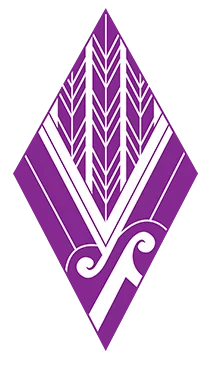
Success, best mentioned in the whakatauki “Tūwhitia te hopo, mairangatia te angitū!” Feel the fear and do it anyway!
Options like university can be more difficult for people with certain backgrounds. That was a challenge for me. It would have been a harder pathway to follow, with a need for financial support. And then you have life happening; like when I moved to Christchurch, I had a relationship break up. I think that can push you to learn more about yourself. Try to take it as a blessing in disguise, to be more independent or move towards what you’re wanting to do.
The wins for me are all the opportunities I’ve had. With the police, I got to go on police rides and see what they actually do and be a part of it. I got some insight into their processes and court processes, which is helpful to understand how things work. Then, I’ve had opportunities with defence, with sports and with the Māori cultural group and doing events at the Government House with foreign dignitaries coming in.
I’ve also been a speaker at a medal ceremony and I’ve done volunteering activities for Anzac Day and Poppy Day. Working with different types of people, doing special roles that you wouldn’t find yourself in normally and all together, that’s collectively going to give you some really good experience and insight to the world.